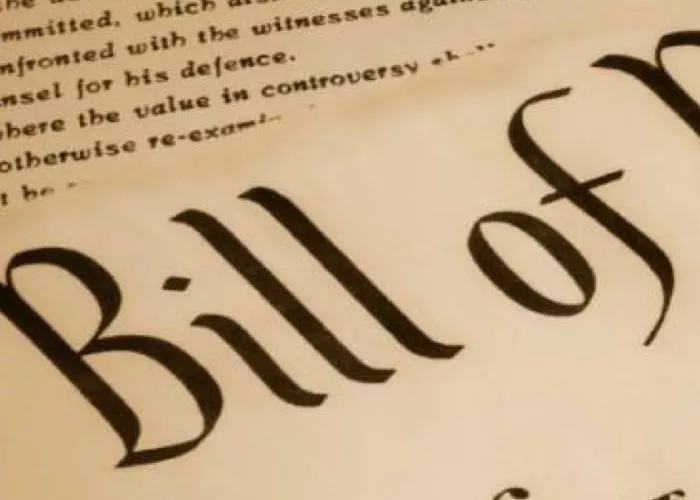November 20 has witnessed a variety of pivotal events throughout American history, spanning from early colonial times to modern technological advancements. This article will explore these significant occurrences in detail, highlighting their historical context and impact.
What Happened on November 20 in American History?
The Ratification of the Bill of Rights (1789)
On November 20, 1789, New Jersey became the first state to ratify the Bill of Rights. This momentous event marked a critical step in the establishment of individual liberties in the United States. The Bill of Rights, consisting of the first ten amendments to the Constitution, was introduced to ensure protection for fundamental rights such as freedom of speech, religion, and assembly.The ratification process began after the Constitution was adopted in 1787. Many states were hesitant to ratify without assurances that individual rights would be protected. New Jersey’s ratification set a precedent and encouraged other states to follow suit. By December 15, 1791, enough states had ratified the amendments for them to become part of the Constitution, solidifying essential rights for American citizens.
The Sinking of the Essex (1820)
On November 20, 1820, the whaling ship Essex was rammed by a sperm whale in the Pacific Ocean and subsequently sank. This tragic incident occurred about 2,000 miles from the western coast of South America and resulted in a harrowing survival story for its crew. The Essex was captained by George Pollard Jr., and its crew faced extreme hardships after the ship went down.The crew’s ordeal inspired Herman Melville’s classic novel Moby-Dick, published in 1851. Melville drew upon the real-life experiences of the Essex crew, particularly their struggle for survival after being stranded at sea. The story highlights themes of obsession and revenge, particularly through Captain Ahab’s pursuit of the elusive white whale.
The Nuremberg Trials Begin (1945)
On November 20, 1945, the Nuremberg Trials commenced in Germany. These military tribunals were established to prosecute prominent leaders of Nazi Germany for war crimes committed during World War II. Twenty-four defendants were indicted on charges including crimes against peace, war crimes, and crimes against humanity.The trials were significant not only for their legal implications but also for their role in establishing a precedent for international law and human rights. The proceedings highlighted the atrocities committed during the Holocaust and sought to hold individuals accountable for their actions rather than allowing nations to evade responsibility. The trials lasted until October 1946 and resulted in several death sentences and prison terms for many defendants.
Queen Elizabeth II’s Marriage (1947)
On November 20, 1947, Princess Elizabeth married Prince Philip Mountbatten at Westminster Abbey in London. This royal wedding was a significant event not only for Britain but also for global audiences who followed the lives of royal families closely. Elizabeth was just 21 years old at the time and became queen six years later after her father’s death.The marriage symbolized stability and continuity for Britain in a post-war era marked by social change and uncertainty. Elizabeth and Philip’s union produced four children and has been characterized by a strong partnership that endured through decades of public scrutiny.
The Release of Microsoft Windows 1.0 (1985)
On November 20, 1985, Microsoft released Windows 1.0, marking a significant milestone in personal computing. This operating system introduced a graphical user interface that allowed users to interact with their computers more intuitively compared to previous command-line interfaces.Windows 1.0 laid the groundwork for future versions of Windows that would dominate the personal computer market. Its release represented not only a technological advancement but also a shift in how people interacted with technology, making computers more accessible to everyday users.
The Launch of Zarya (1998)
On November 20, 1998, Zarya, the first module of the International Space Station (ISS), was launched into orbit. This marked a significant achievement in international cooperation in space exploration. Zarya served as both a power module and a storage facility for supplies needed by astronauts aboard the ISS.The ISS has since become a symbol of scientific collaboration among nations and has facilitated numerous experiments in microgravity environments. It continues to be an essential platform for research that benefits life on Earth and advances our understanding of space.
Native American Occupation of Alcatraz Island (1969)
On November 20, 1969, Native American activists began an occupation of Alcatraz Island as part of their protest against U.S. government policies regarding Indigenous peoples. This event was organized by members of various Native American groups who sought to reclaim land they believed had been unjustly taken from them.The occupation lasted until June 1971 and drew national attention to issues facing Native Americans, including treaty rights and sovereignty. It helped ignite a broader movement advocating for Indigenous rights across America.
Conclusion
November 20 has proven to be a day rich with historical significance across various domains—political milestones, cultural events, technological advancements, and social movements have all marked this date throughout American history. Each event contributes uniquely to our understanding of past struggles and achievements that shape contemporary society.Through examining these occurrences—ranging from foundational documents like the Bill of Rights to transform technological innovations like Microsoft Windows—we gain insight into how history unfolds through interconnected events over time.
Related Topics:

